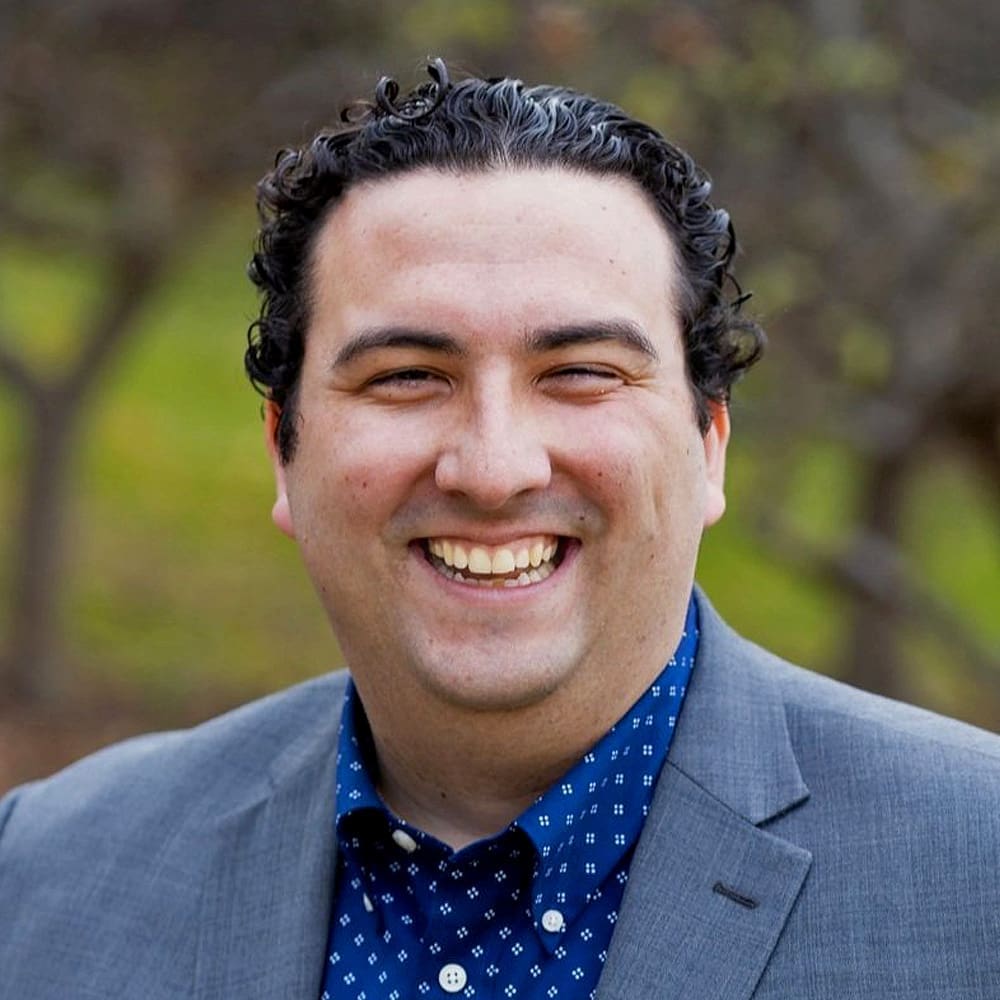T
There is much effort to distinguish between the private and public aspects of human life. Which is trustworthy? Which is meaningful? Which is suspect?
While nuanced accounts exist, notice how often the public and the private are pitted against each other:
What is public is performative; what is private is earnest.
What is public is truly meaningful; what is private is mere sentiment.
What is public is compromised; what is private is pure.
These judgments become especially pronounced in the realm of religion. What is the fashion company that puts a Bible verse on its product doing? What about the politician who divulges that they prayed prior to announcing their run for elected office? What authority does the person referencing his faith believe it gives him? What does his God think about me and people like me?
These are rational questions. Religion’s misuses often play out publicly—as a shield to avoid accountability, as a tool for exclusion, as a cover to impose one’s own will. While the US Constitution doesn’t ensure “freedom from religion,” calls for such a freedom reflect an understanding of religion that modern liberalism at least gestures toward: that some things, especially public things, can be (or should be made to appear to be) free from religious influence.
Yet private faith generates its own discomfort. Consider the revelation that a close colleague practices their faith devoutly. “Did I ever really know that person at all?” If religion is to speak to what is real and vital (and if it is to be taken seriously, it must), how could it be confined to the private alone?
Three distinct if importantly inconsistent sets of contrasts shape how many of us perceive the public and private spheres today. First, the public is seen as the place of meaningful action and progress, while the private is the realm of the personal and contemplative, irrelevant to human affairs. This view has several sources, including a materialist perspective that counts only what can be tracked through cause and effect. Christians, though, should not doubt the power of what happens in private. I am reminded of Bonhoeffer’s observation in Life Together that a Christian will speak to God about a brother more than to a brother about God. Christians must see the private as a place for meaningful action, because our very hope is based on that which is unseen.
The private has also been relegated to lesser importance because of our culture’s devaluation of character as a driver of action. In a rejection of the “great man” theory of history, we have overcompensated by removing the human will from history entirely. We celebrate the person who proves heroic after the fact but neglect the desire driving the act. We celebrate progress but neglect the formation required to achieve it. As T.S. Eliot observed, we seek a system so perfect that we won’t have to be good. Yet a healthy public life requires healthy people, and a moral public life requires the kind of people who desire to be and do good.
Importantly, it is not simply that goodness forms in private and shows up in public. The private and the public are not so tidily separated. The will to good is always personal, but it is not located in the public or the private alone. Goodness is often formed in public and realized in private, and also grows the other way around.
The second false distinction is to cast public life as the realm of performance and hypocrisy, while private life is the place where we are finally safe to be authentic and genuine. These assumptions deserve scrutiny. Public life isn’t dishonest because it is mediated. There is an idea that, in order to be truly honest, our public life must reflect how we act in the privacy of our own homes, the intimacy of our own families. But the fact that our public life can mediate our private impulses—that there is a separate decision that is made between thinking a thing and saying it, writing a thing and posting it—can be a gift. Our public life could be composed, not of our refuse, not of the worst we have to offer because we think our public life needs it or we think we can get away with it, but of that which we choose to contribute to it, that which we think is for the good of the public.
In public we are not wholly other, and in private we are not more truly ourselves. People deceive themselves just as readily as, if not more than, they deceive others. Just because something is kept private does not mean it is kept pure. What lies we tell ourselves about those who are out there, in the public, and how we flatter ourselves with our criticisms from the sidelines, hidden from all but God. Public life is not dishonest; we are.
Third, we think of the public as the place for seeking recognition, and the personal as the realm of contentment. Yet public achievements rarely belong to individuals alone—they emerge from shared effort and responsibility. Participation in public life is at least as likely to cultivate humility, compassion, and gratitude as it is to inflate one’s own self-regard. Meanwhile, in the private spaces where we presume greater control, violations of our will can feel unforgivable. To enter public life is to expect to be challenged. But in private, the realm that we assume is our domain, we get unmoored the moment our autonomy and effectiveness are threatened. One doesn’t need an audience to strive, and the weight of our personal, private failures can seem to have nowhere to fall but on our own shoulders.
Whether viewed positively or negatively, private life is almost always seen through a sentimental, nostalgic lens. Public life is viewed as crass, yet meaningful. These associations should be challenged, even if the tension between the public and private may remain necessarily unresolved.
A Christianity confined to either private or public realms ceases to be meaningfully Christian.
In Matthew 5, Jesus declares, “You are the light of the world. A town built on a hill cannot be hidden. Neither do people light a lamp and put it under a bowl. Instead they put it on its stand, and it gives light to everyone in the house. In the same way, let your light shine before others, that they may see your good deeds and glorify your Father in heaven.” Interestingly, immediately in the next chapter he warns, “Be careful not to practice your righteousness in front of others to be seen by them. . . . When you give to the needy, do not announce it with trumpets, as the hypocrites do in the synagogues and on the streets, to be honored by others. Truly I tell you, they have received their reward in full. But when you give to the needy, do not let your left hand know what your right hand is doing.”
These teachings, seemingly opposed, are not irreconcilable but complementary. Christianity confounds us because it is essentially both private and public. The liberal mind seeks to divide life neatly: family is private, education public; politics is public, morality private; work is public, sex is private. These are all ham-fisted, unnatural distinctions, which do not become any more sensible when Christianity is asked to serve them. Richard Dawkins wishes for a “cultural Christianity”—that is, a Christianity with public influence absent Christian devotion. Others call for, and indeed profess, a private faith: “It’s between me and my God.” As factual matters, neither can be taken seriously.
Those who oppose public expressions of religion often argue that faith belongs solely in one’s private, personal sphere. Critics of personal religion may value it for social construction, but never for metaphysical reality. This forced binary between public and private spheres often serves to shield us from confronting our own moral fragmentation. While I’m sympathetic, it amounts to an avoidance of reality. A Christianity confined to either private or public realms ceases to be meaningfully Christian. It may be affiliation. It may be comfort. But it is not Christianity.
What unites public and private life is a profound theological reality. In The Divine Conspiracy, Dallas Willard observes that only two spaces in all creation permit God’s will to be absent: the social-political realm and the individual human heart. This is no coincidence. Both spheres are defined by human agency—places where we can choose to resist or embrace God’s purposes. The brokenness we see in public life and the struggles we face in private both stem from this shared reality: they are spaces where human will can operate independently of divine will, even as God’s grace continues to work within them.
What we need today are Christians who have a vision for an inner life of such vitality, nourished by the Holy Spirit, drawing ever nearer to Jesus and the wellspring of joy and peace that he offers, such that we can go far out into the public, sustained by that life, to be a blessing to others. The public aspects of our lives are not superfluous to the spiritual life. We each have one spirit. We each have only one life. Who will we be there, in the public? What might Jesus have for us there?
As we go deeper into life with Jesus, we find tremendous resources for going “out there,” with Jesus, into our public life. Disciplines that take place in private, often disciplines of abstention, can be of great help in shaping us to be faithful in public life. Silence, solitude, Sabbath, fasting—these are disciplines that can break us free from the yoke of people-pleasing, the burden of immediately fulfilling our own desires or of “setting the record straight.” Through these practices, we discover a God who is capable of meeting our needs, who loves us beyond our capacity to produce anything for him.
Meanwhile, public disciplines, take service as one example, expose aspects of ourselves we would often rather not see. In the unplanned, contingent encounters and exchanges of public life, we discover new aspects of who we really are, and we can be forced to reckon with the state of our character, unprotected by domesticated environments or chosen company. How does your spirit manage service in different environments? One might serve at a food pantry among the hungry and the homeless, and learn a great deal about oneself and others in the process. It can also be an eye-opening experience to serve among the rich, perhaps as a bartender at a fundraising gala for a non-profit.
The two-sided coin is this: good formation for public life requires private disciplines, just as good formation for one’s inner life requires public disciplines. What we seek is to be integrated people who are learning from Jesus how to be like him in all of life, as we live our life with him. This requires taking the unseen seriously. It requires viewing moral knowledge as publicly valid and valuable. It also requires the local church, that liminal yet central institution, where, as you close your eyes in prayer, seemingly alone with God, you are reminded that you are not alone as your “Amen” joins the voices of others, and you open your eyes to see their faces.






